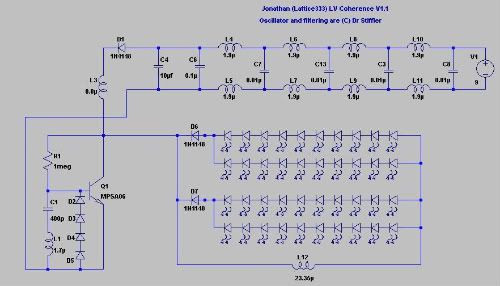@samedsoft,
last time I checked you were NOT the moderator so please do not misrepresent one.
@Dr.Stiffler and gmeast
WTF is wrong with you two? (if you don't know WTF means, check Urban Dictionary: wtf as well)
Have you seen that movie "Grumpy old men"? That's how I picture you two, Jack Lemmon and Walter Matthau getting at each other's throat?
I sense this must be something to do with the age, since you both appear to be older than most of us here. Sorry I have given you credit to have more wisdom than the rest of us due to the age - I guess I made a principal mistake.
Either that or you both have some mineral/vitamin deficiency which is affecting your cognitive functions, but I'm not your physician and can't help you there.
NOBODY is out here to get YOU. Matter a fact this forum is so much devoid of OU.com kind of non-sense and is filled with some really kind, good and friendly people overall (at least from my personal experience).
I'll answer the damn questions:
Yes, you need a Spectrum Analyzer if you wish to see the spectra of your oscillations. As SEC is a Ultra Wide Band circuit it will oscillate from 1 all the way up to 500 MHz.
Yes, you need a good LCR meter with a good range and precision, down to micro or nano henries.
Yes, anyone serious about electronics should have at least one true RMS meter. Any meter would have a transistor gain capability among other things.
Yes, having an oscilloscope is mandatory these days in any environment and for $50 you get a decent one on eBay.
Yes, a bench power supply is mandatory whether or not you deal with SEC.
Yes, a signal generator is necessary when dealing with non-standard AC/DC circuits ie. pulsed/impulse, etc.
ANYONE serious about electronics (amateur or professional) would have at least a bench supply, a true RMS meter, a soldering iron, bunch of components, wire.
Only your budget is the limit. Asking what exactly you need to buy for a single project only works in the Military where money is not the issue, not in the civilian home environments.
last time I checked you were NOT the moderator so please do not misrepresent one.
@Dr.Stiffler and gmeast
WTF is wrong with you two? (if you don't know WTF means, check Urban Dictionary: wtf as well)
Have you seen that movie "Grumpy old men"? That's how I picture you two, Jack Lemmon and Walter Matthau getting at each other's throat?
I sense this must be something to do with the age, since you both appear to be older than most of us here. Sorry I have given you credit to have more wisdom than the rest of us due to the age - I guess I made a principal mistake.
Either that or you both have some mineral/vitamin deficiency which is affecting your cognitive functions, but I'm not your physician and can't help you there.

NOBODY is out here to get YOU. Matter a fact this forum is so much devoid of OU.com kind of non-sense and is filled with some really kind, good and friendly people overall (at least from my personal experience).
I'll answer the damn questions:
Yes, you need a Spectrum Analyzer if you wish to see the spectra of your oscillations. As SEC is a Ultra Wide Band circuit it will oscillate from 1 all the way up to 500 MHz.
Yes, you need a good LCR meter with a good range and precision, down to micro or nano henries.
Yes, anyone serious about electronics should have at least one true RMS meter. Any meter would have a transistor gain capability among other things.
Yes, having an oscilloscope is mandatory these days in any environment and for $50 you get a decent one on eBay.
Yes, a bench power supply is mandatory whether or not you deal with SEC.
Yes, a signal generator is necessary when dealing with non-standard AC/DC circuits ie. pulsed/impulse, etc.
ANYONE serious about electronics (amateur or professional) would have at least a bench supply, a true RMS meter, a soldering iron, bunch of components, wire.
Only your budget is the limit. Asking what exactly you need to buy for a single project only works in the Military where money is not the issue, not in the civilian home environments.



 ... here is my first test using a high lumens LED (20W pure white 1000 lumens LED, 13-15V, 1,400-1,800mA, off of eBay).
... here is my first test using a high lumens LED (20W pure white 1000 lumens LED, 13-15V, 1,400-1,800mA, off of eBay).



Comment